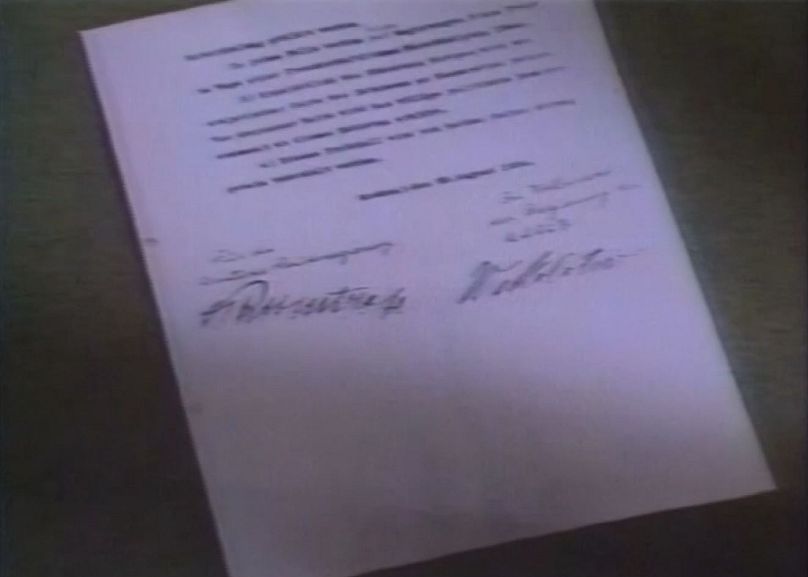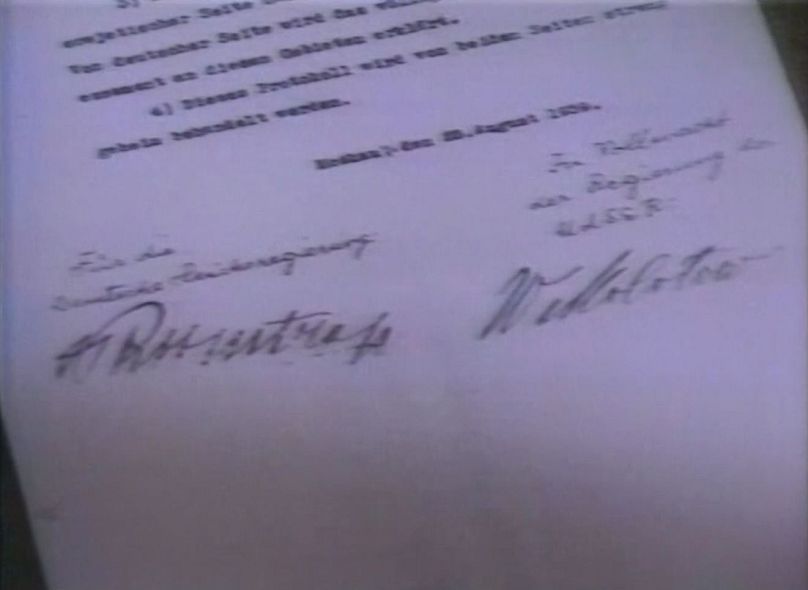How a little-known WWII pact between Nazi Germany and the Soviet Union is still dividing Europe today.
The Molotov-Ribbentrop Pact between the Soviet Union and Nazi Germany was signed 80 years ago on August 23, 1939.
The historic document, officially as a neutrality pact between the two parties, saw the map of Europe secretly redrawn.
It agreed to Poland being invaded by Nazi Germany without Soviet protest, as well as the fact that Stalin could annex the three Baltic states — Latvia, Lithuania and Estonia — and Finland.
Fifty years later, up to two million people joined hands across the Baltics in a peaceful, anti-Soviet protest, called the Baltic Way.
Today, exactly 30 years on, five EU states issued a joint statement calling on European governments to take a stand against totalitarian regimes, but Russia's reaction on the anniversary week was somewhat different.
Read more
Baltic Way: 30 years since the 600-km human chain that helped trigger the collapse of communism
Baltic Way: One man's memories of the 600-km human chain calling for independence from Soviet Union
Meet the pilot who defied KGB orders to drop flowers on Baltic Way human chain
What do Baltic states, Poland and Romania say?
The foreign ministries of Estonia, Latvia, Lithuania, Poland, and Romania said in the joint release that the document, signed by Soviet foreign minister Vyacheslav Molotov and his Nazi German counterpart, Joachim von Ribbentrop, "sparked World War 2 and doomed half of Europe to decades of misery".
They underlined that this is why the European Parliament chose August 23 as the European Day of Remembrance for Victims of Totalitarian Regimes, aimed at remembering those whose "deaths and broken lives were a consequence of the crimes perpetrated under the ideology of Nazism and Stalinism".
"We can counter more effectively disinformation campaigns and attempts to manipulate historical facts," the authorities said, by providing support to the ongoing historical investigation of the totalitarian regimes.
Remembering the fall of Iron Curtain 30 years ago, the nations said they "started the democratic transformations that eventually made us equal and vigorous members of the European Union".
How has Russia reacted?
Russia this week put both the original Molotov-Ribbentrop pact as well as its secret protocol on public display for the first time.
It featured as part of an exhibition at the country's State Archives in Moscow alongside documents ranging from the Munich agreement of 1938 to the outbreak of war.
However, Russia’s foreign minister Sergei Lavrov, speaking at the event's opening, suggested Russia only signed the Molotov-Ribbentrop Pact because several countries tried to appease Hitler with their own pacts and treaties.
"Naively calculating that the war would pass them by, the Western powers played a double game. They tried to steer Hitler's aggression eastwards. In those conditions, the USSR had to safeguard its own national security by itself," he said.
Adding it was under these circumstances "the Soviet Union was forced on its own to ensure its national security and signed a non-aggression pact with Germany."













